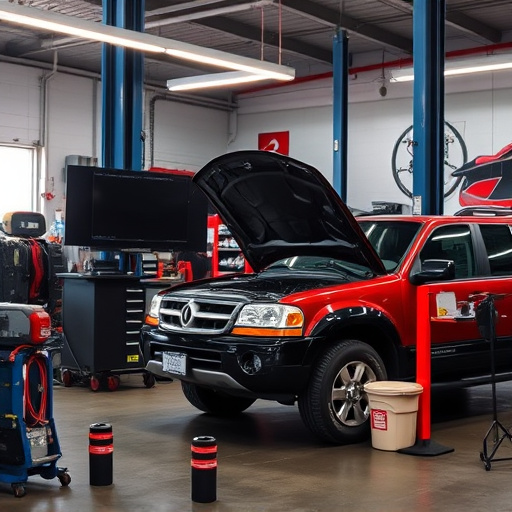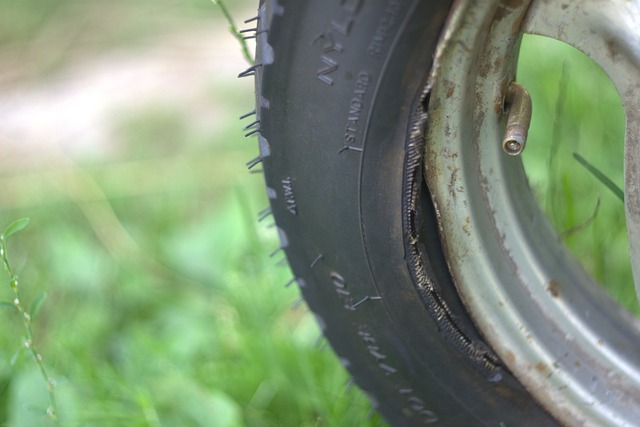Specialized training is paramount for efficient and safe hazardous waste management. Regular programs equip professionals with knowledge of regulations, safety protocols, and innovative waste minimization techniques. Through hands-on learning, including simulations and practical skills like car body restoration, teams gain crucial experience in disposal methods and equipment handling. Customized training addresses specific pain points, enhancing team performance and fostering a culture of safety. Regular sessions keep hazardous waste management teams updated on best practices, ensuring adaptability to evolving environmental standards and technological advancements.
Training programs are instrumental in fortifying hazardous waste management teams, equipping them with the expertise and resilience needed to navigate complex challenges. This article delves into the multifaceted role of training, exploring specialized courses that address unique waste management issues. We discuss tailored strategies for optimal performance, highlighting interactive methods, real-world simulations, and peer learning. Additionally, we assess success through key performance indicators, long-term benefits, and continuous improvement, underscoring the profound impact comprehensive training has on enhancing hazardous waste management practices.
- The Role of Training in Enhancing Hazardous Waste Management
- – Importance of specialized training for waste management teams
- – Overcoming challenges through tailored programs
The Role of Training in Enhancing Hazardous Waste Management

Training programs play a pivotal role in enhancing the capabilities and effectiveness of hazardous waste management teams. By providing specialized knowledge and practical skills, these programs ensure that professionals are well-equipped to handle diverse and complex scenarios involving toxic substances. Regular training sessions not only update employees on the latest regulations and safety protocols but also equip them with innovative techniques for waste minimization, containment, and disposal.
In the realm of hazardous waste management, continuous learning is a game changer. It enables teams to adapt to evolving environmental standards, stay abreast of technological advancements in vehicle restoration and auto body work, and apply these innovations to streamline operations. This expertise translates into more efficient waste processing, reduced environmental impact, and enhanced public safety, ultimately contributing to the sustainable management of hazardous materials.
– Importance of specialized training for waste management teams

Specialized training is an indispensable component for fostering effective hazardous waste management practices among teams. With ever-evolving regulations and complex handling procedures, continuous education ensures workers stay up-to-date with the latest safety protocols and best practices. This is particularly crucial in the context of hazardous waste management, where even minor errors can lead to severe environmental and health risks.
Training programs provide an opportunity for hands-on learning, allowing teams to simulate real-world scenarios, including emergency situations. By practicing car body restoration or frame straightening techniques specifically related to hazardous materials, workers gain valuable experience in safe disposal methods and equipment handling. Such tailored training not only enhances individual skills but also contributes to a culture of safety within the entire hazardous waste management team.
– Overcoming challenges through tailored programs

Hazardous waste management teams often face unique challenges due to the specialized nature of their work and the ever-evolving regulations they must adhere to. Overcoming these obstacles requires tailored training programs that address specific pain points. By customizing the training, organizations can ensure their employees gain practical skills relevant to their roles, enhancing overall team performance.
For instance, a comprehensive program might include modules on identifying and handling various types of hazardous materials, implementing safety protocols, and utilizing specialized equipment. This targeted approach enables workers to confidently navigate complex scenarios, such as responding to emergencies or managing unexpected spills. Moreover, regular training sessions keep teams updated on new best practices, mirroring the dynamic nature of waste management itself. Even aspects seemingly unrelated to waste management, like auto frame repair or dent removal, can be incorporated into broader safety and efficiency discussions, highlighting the interconnectedness of skills in specialized fields.
Training programs play a pivotal role in strengthening hazardous waste management teams, addressing their unique challenges, and ensuring optimal performance. By providing specialized knowledge and skills, these programs enhance the team’s ability to navigate complex waste handling scenarios safely and efficiently. Through tailored curriculum and practical exercises, they empower employees to make informed decisions, mitigate risks, and adapt to evolving regulations in the field of hazardous waste management.













